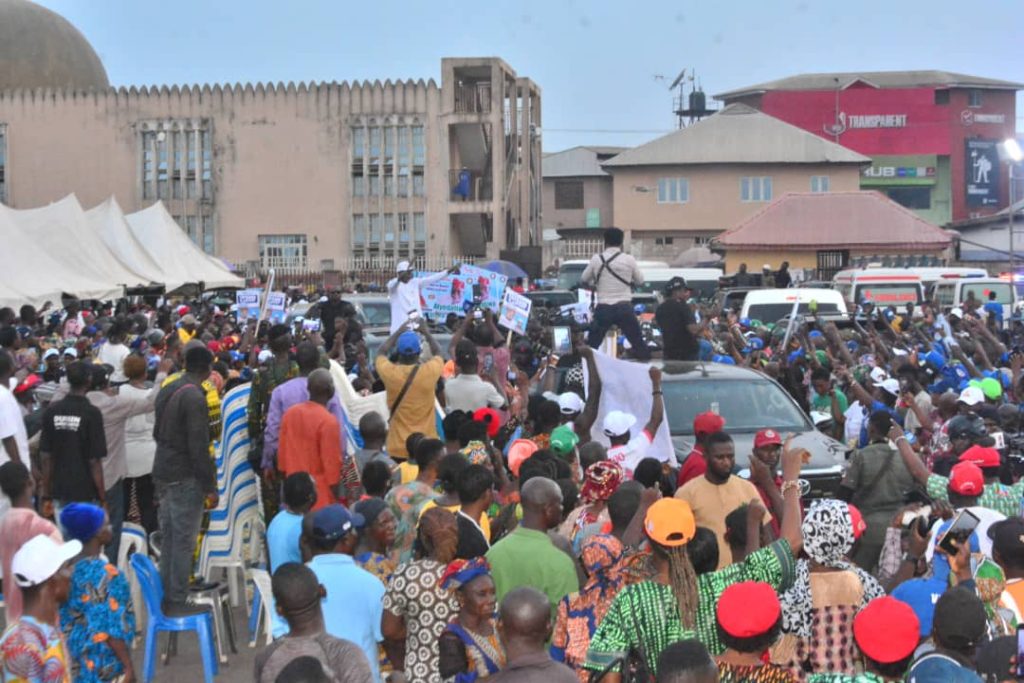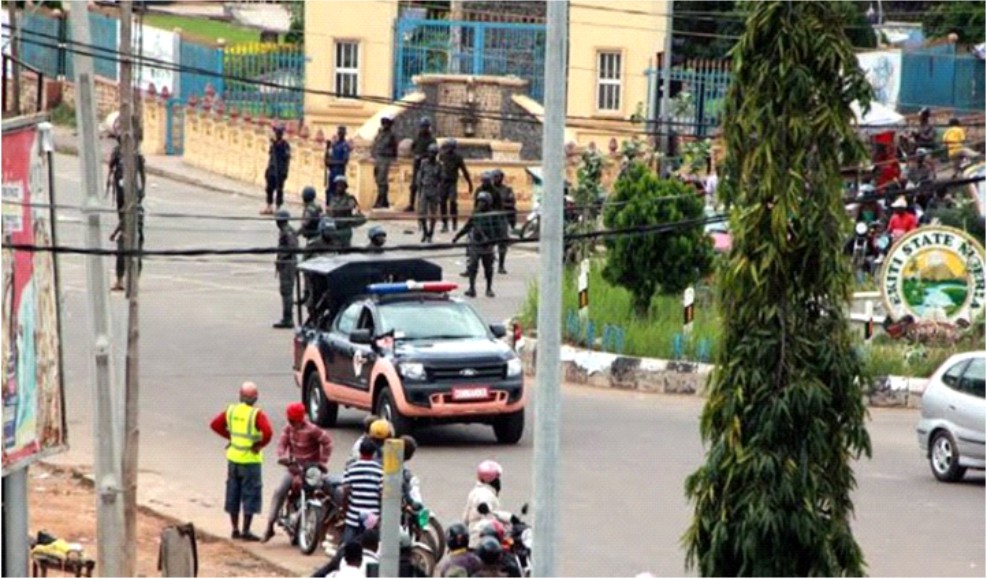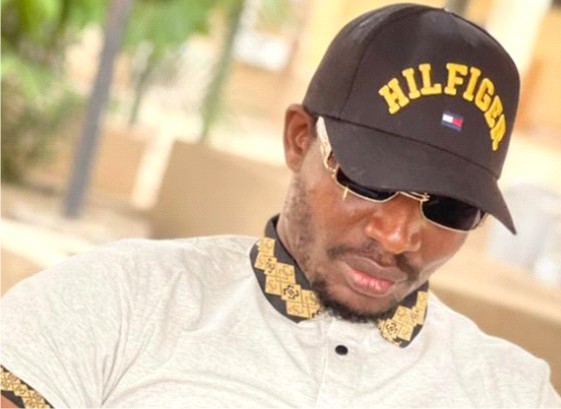Nigeria on precipe, as armed men ravage the land
By Bisi Olominu
|
In the 60s and 70s, Nigeria was not notorious as we have it today. It was peaceful and people could close their eyes and sleep peacefully. But that peace was shattered by the three years civil war where millions of people lost their dear lives.
Ever since, Nigeria has not remained the same again. The civil war came with men turning to armed robbery and this brought untold hardship in the land. Many were killed and homes shattered as armed robbers gained momentum in the country. From the south, east, west and north, armed robbers were on the prowl, and guns now became a booming business in the country.
The coming of politics in the country has increased the proliferation of guns in Nigeria. Notable politicians and elite in the country have fortified their thugs to protect their fiefdoms.
Since the Commonwealth called Nigeria has become ‘ATM’, the elite holding the country in jugular are doing everything to maintain their power in the country. Also, those having the where withal and access to guns and ammunitions are recruiting like minds to have their shares of the Commonwealth.
The Nigerian Fire Arms Act (1990) provides that no person shall have in his possession or under his control any firearm or ammunition except such person has a license from the President or from the Inspector General of Police.
It states further that no license or permit to carry fire arms should be granted to applicants under the age of seventeen; persons who are of unsound mind; persons not fit to have possession of the firearm in question on account of defective eyesight; persons of intemperate habits or anyone who has during the previous five years been convicted of an offence involving violence or the threat of violence.
Except for licensed fire arm dealers, it is unlawful for anyone to buy or sell fire arms or ammunitions. The same goes for fire arm manufacturing, only the Inspector – General of police can grant a license to make and repair fire arms in Nigeria, however such persons must be duly documented and registered.
Anyone who has in their possession unlicensed firearms; who imports or exports firearms or ammunition other than through prescribed ports or who manufactures, assembles, or repair of firearms and ammunition unlawfully shall be liable to a minimum sentence of ten years imprisonment.
The list of prohibited firearms as stated in the law includes: artillery, apparatus for the discharge of any explosive or gas-diffusing projectile; rocket weapons; bombs and grenades; machine-guns and machine-pistols; military rifles, namely those of calibres 7.62 mm, 9 mm., .300 inches and .303 inches; revolvers and pistols whether rifled or unrifled (including flint-lock pistols and cap pistols).
Personal fire arms are also prohibited including shotguns other than- automatic and semi-automatic shotguns; shotguns provided with any kind of mechanical reloading device; sporting rifles, air-guns, air-rifles or air-pistols and humane killers of the captive bolt type. Dane-guns, flint-lock guns and cap guns are also included in the list.
Despite the law of the land prohibiting the importation of arms and ammunitions into the country, the porous borders have become venues to bring guns into the country, and today every Dick, Tom and Harry has guns in their houses to protect their domains. Many now circumvent the law of the land, reason guns and ammunitions are in the wrong hands in Nigeria today.
The militias in the land, kidnappers and Boko Haram now have unrestrained access to guns and peace has not returned to the country.
During the sixteen months that Nigeria’s land borders were closed, it was gathered that 5,766 pump action guns, cartridges/ammunition were seized by the Federal government through the Nigeria Customs Service, valued as of December 17,2020 was N12.36billion.
Also, the Police Command in Enugu State arrested 10 suspects in July last year for various criminal offences within the state.
The state Commissioner of Police, Mr Ahmed Abdurrahman, said that the offences included conspiracy, armed robbery, unlawful possession of firearms and cultism.
Abdurrahman said that the items recovered from the suspects included six arms, 15 ammunition of 5.56mm calibre, 36 live cartridges and 12 expended cartridges.
In addition to this, the Nigeria Customs Service (NCS) on December 13, 2020 intercepted a truck loaded with dangerous ammunition including locally manufactured rifles in Kebbi.
In a statement by the agency’s public relations officer, Joseph Attah, the truck was intercepted along Yauri, Zamare waterside in the northern state with locally produced rice.
Attah said upon careful examination, sacks kept under the rice were found to contain 73 locally manufactured guns and 891 cartridges
He said the culprits who are three in number were immediately arrested and are currently undergoing preliminary investigation.
Speaking in a statement, the comptroller of Customs Zone B, Hamisu Albashir, described the development as a success in the fight against smuggling of illegal weapons into the county.
He added that the operation is a big feat and a signal to those planning “to bring any harmful items into the country” through the zone.
He urged members of the public, especially, border community dwellers to provide credible information that can help effective border security.
Also, the operatives of the the Nigerian Customs Service have seized 170,000 live bullets from smugglers, in perhaps the biggest ever haul made in decades, officials said in Lagos
Ade Fadahunsi, head of the Customs special anti-smuggling squad, said the smugglers abandoned a lorry laden with the illegal goods and fled into the bush early last week when they sighted a roadblock mounted by his men on the highway between Lagos and Benin city in western Nigeria.
He said the ammunitions were hidden beneath empty cartons of beer and heaps of charcoal, and had apparently been smuggled into Nigeria through nearby creeks leading to the Atlantic coast near the country’s commercial capital, Lagos from an unnamed neighbouring West African country.
“It is the largest seizure made so far,” said Fadahunsi, who could not remember when any seizure of comparable quantity was made in the past.
“We first referred the matter to the Presidency before it was reported to the Inspector-General of Police who later directed that it should be reported to the Ogun State Police Command (in charge of the area the discovery was made). We have since complied with all the directives,” he said.
A retired major general of the Nigerian Army, whose name was not made public by the police, was arrested in Aba, the commercial capital of Abia State for alleged arms trafficking.
Commissioner of Police, Etim Okon, who disclosed this at a press briefing in Umuahia, said the suspect was arrested with guns including AK47 and pistols. He said the suspect along with other members of the syndicate were currently in police custody and undergoing interrogations.
The police boss, who refused to disclose the identity of the suspect, said efforts were still on to retrieve arms which the syndicate had already sold to their customers.
The Police Commissioner also disclosed that no fewer than 411 suspected criminals had been arrested by the police in Abia between February 25 and December 15, 2019.
The CP said 648 firearms and ammunition as well as 110 vehicles were recovered within the period under review.
Nigerian troops also arrested three foreign nationals as part of the country’s arms smuggling crackdown, an official said late December, 2020
Addressing reporters in northern Katsina, military spokesperson Benard Onyeuko said the three Nigerien nationals were suspected of supplying arms to criminals terrorizing the northwestern regions of Nigeria.
He said the three suspects were arrested in the Dantudu-Malailai district of Sabon-Birni in Sokoto state on Saturday.
According to Onyeuko, weapons seized from the suspects included six AK-47 rifles, three AK-47 rifle magazines, and 2,415 rounds of 7.62 mm ammunition.
Violence from bandits has been affecting people living in the northwest part of Nigeria recently, leading to civilian deaths, cattle rustling and kidnapping for ransom.
Nigeria’s military is currently carrying out a number of operations to rid the region of illegal armed groups.
Meanwhile, the United Nations has raised alarm over proliferation of illicit small arms and light weapons (SALW) in Nigeria, with over 350 million.
According to the organisation, 70 per cent of estimated 500 million of such weapons said to be circulating in West Africa is domiciled in the Nigeria
The Director of United Nations Regional Centre for Peace and Disarmament in Africa, UNREC, Ms. Olatokunbo Ige, gave this startling statistics at the ongoing National Consultation on Physical Security and Stockpile Management (PSSM) in Abuja, organised by the Agency and Presidential Committee on Smalls Arms and Light Weapons, PRESCOM.
Ige said the country was awash with illicit weapons, which had found their way into unauthorised hands of non-state actors threatening the existence of the country, as well as lives and properties of the people.
She said: “The illicit proliferation of SALW has had a dramatic impact on peace and security in Africa, threatening not only the existence of the state, but also the livelihoods of millions of people across the continent.
“Nigeria is one of the countries experiencing some of the most devastating effects of the proliferation of SALW as a result of spill over effect of the recent crises in Libya and Mali as well as unresolved internal conflicts in different parts of the country, especially in the North East, Niger Delta and southern regions.
”While reliable data on the numbers of these weapons circulating freely in the country is unavailable, analysts have in recent times estimated that of the about 500 million weapons that may be circulating in West Africa in 2010, some 70 per cent of these could be found in Nigeria.”
She warned that “as alarming as these figures seem, it is very clear that if left unchecked, this scourge will not only jeopardise the developmental gains achieved over the last 50 years, but will also impede the nation’s capacity to achieve its developmental targets and, therefore, negatively impact on the future generations.”
According to Ige, this has highlighted, more than ever before, the critical need not only to control the flow of arms in the non-state sector, but also the state owned actors through the effective management of armoury and weapon stockpiles.
“It is widely acknowledged that one of the major factors contributing to the illicit proliferation of arms is the ineffective stockpile management,” she noted.
The UNREC boss stressed that unsecured stocks and ineffectively managed stockpiles were a major contributing factor to the trafficking and diversion of arms into the illicit market and their subsequent flow to terrorists and other criminal groups as Boko Haram and Niger Delta militants.
She said that part of the activities programmed under the PSSM in the Sahel project in the context of the UN and European Union (EU) was to support security and stability in the region.
Ige explained that the project, which is funded by the EU, had been developed jointly by the United Nations Office of Disarmament Affairs, UNODA, for the benefit of the six Sahel countries of Burkina Faso, Chad, Mali, Mauritania, Niger and Nigeria.
“This project aims to support states in the region to prevent diversion and trafficking of SALW and their ammunition, by improving the PSSM of national stockpiles,” she stated.
Also speaking, the Chairman of PRESCOM, Amb. Emmanuel Imohe, said Nigeria’s Firearms law was obsolete and ineffective in the face of the 21st century security challenges.
Imohe said PRESCOM had to generate a new document in collaboration with relevant agencies for over six months to come out with a repeal of the firearms bill that is yet to be attended at the National Assembly.
“The 1959 Firearms Act is obsolete and using the 1959 law to tackle the 21st century security challenges is ineffective,” he said.
In the same vein, the Resident Coordinator of the UN Systems in Nigeria, Ms. Jean Gough, said: “The elaboration of laws and procedures which are adapted to the current reality, aiming to provide the necessary framework to better prevent the occurrence of eventual theft, loss, diversion and explosions in national weapons and ammunition storage, has become an essential requirement.
“Through the provision of technical assistance and the necessary resources to this effect, technical and financial partners have committed to support the beneficiary member states of this project in this endeavour.”
Gough, however, noted that the major challenges in the fight against the illegal and abusive use of SALW remained the issue of illicit transfer of such weapons to non-state actors, including armed groups, terrorists and criminals.
The Sultan of Sokoto, Alhaji Mohammadu Sa’ad Abubakar during the 4th Quarterly meeting of the Nigeria Inter Religious Council in the Federal Capital, City, Abuja warned that the security situation in the North has gotten out of hand and bandits have overrun the region.
He further said it’s outrageous that in many parts of the North bandits walk round openly carrying AK-47 rifles without being challenged by any security agents. Sultan correctly pointed out, the North has now become the worst place to live in Nigeria.
Speaking with The Hope on how to curtail proliferation of arms and ammunitions in Nigeria, retired Commissioner of Police, Mr. Samuel Adetuyi posited that the onus is on the Federal Government to roll out her armoury and power to curtail the situation in the country.
According to him, ”Nigerians, mostly our leaders travel abroad and they could not see police on the road brandishing guns looking for arms and ammunitions like we do in Nigeria. The police abroad have equipment to detect arms from long distance, this we should copy in Nigeria rather than sending security agents on the road. This is just wasting time and opportunity”.
” Government in Nigeria should go digital like it is done in normal climes. Security everywhere in the world is now technology driven, not that security agents will stay on the road looking for criminals like we are doing in Nigeria.
” My appeal is to the federal government to do the needful, the government should copy from advanced countries of the world on how to tackle security issues. Even they should beg countries like Israel, America and Britain to come and assist us now that the security architecture in Nigeria has collapsed”.
Also speaking on the outcry of Arewa Consultative Forum, ACF, on Camels being used to import guns and ammunitions into Nigeria, Adetuyi said such grave disclosure should not be taken with levity by the federal government.
He stressed that the Forum consisting of eminent Nigerians should be taken seriously, but said that such sensitive security issue should have been passed quietly to the authority rather than making it for public consumption.
” In abroad nobody talk like that, but they alert the appropriate agents that will swing to action immediately”.
In his contribution, the Publicity Secretary of pan Yoruba socio-political group, Afenifere, Yinka Odumakin said that Nigeria as a country is currently going through another war.
” Leadership that can stop the carnage is lacking in Nigeria. It will take God to pass through Nigeria to curtail the present doom.
”Camels are now being used to ferry guns and ammunitions to the country, and those leading us are looking on when the country is on fire. The combatants are not relenting, they are gaining momentum, why those that should apprehend them are just looking on.










